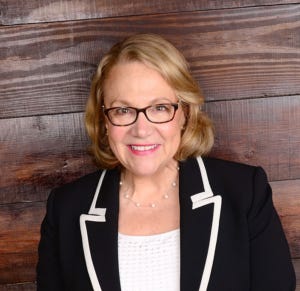Are Dems once again underestimating Trump? | When it comes to Boston’s controversial exam school revamp, the Globe misses the big story | State pot watchdog gins up complaints against critics | Local news revival in Bedford | More evidence the pot commission is high on its own supply |
News tips? Story ideas? Email us at sbvanvoorhis@hotmail.com
Smoke screen: When dealing with critics, the state’s pot watchdog likes to push back with all sorts of allegations, including racial bias
Dogged blogger and reporter Grant Smith Ellis has become a major thorn in the side of the state’s embattled cannabis regulator.
Last September, when Smith Ellis reported workplace bullying complaints by female employees against one of the agency’s rising stars, the agency did more than just attempt to issue a rebuttal.
In a statement, the agency insinuated, without offering any evidence, that racial bias might be driving Smith Ellis’s story about the agency’s now suspended communications chief, Cedric Sinclair, who happens to be Black.
“Any individuals, inside or outside the agency, who contribute to the publication of falsehoods about Commission work as fact, disclose private, personal and personnel information of staff, or engage in racist tropes about any employee will not be tolerated by the agency and will be held appropriately accountable,” the CCC warned.
But if the underhanded tactics have a familiar ring, that’s because the pot agency has used a similar ploy in its bid to oust Shannon O’Brien, the agency’s erstwhile chair.
State Treasurer Deborah Goldberg suspended O’Brien last September after flimsy allegations by disgruntled CCC staff that the former head of the Boston-area Girl Scouts chapter had made a racist remark.
Like Smith Ellis, O’Brien, a long-time Democratic power player and the first woman to be nominated for governor by a major political party in Massachusetts, was a direct threat to the status quo at the laggard agency.
O’Brien had made it clear her mission was to shake things up at an agency mired in political infighting and a toxic workplace culture that has resulted in cannabis entrepreneurs waiting years to get licensed.
And before O’Brien, there was Steve Hoffman, another straight shooter and long-time business executive who was forced out as chair of the commission under mysterious circumstances, including talk of a campaign of ginned up internal complaints against him.
As we approach the anniversary of O’Brien’s suspension, maybe it’s time for Goldberg, the state treasurer, to reconsider her efforts to placate scheming CCC staffers and commissioners by giving the broom to the woman they see a major threat.
Over the past year, Goldberg has racked up more than $750,000 in legal bills in her quest to oust O’Brien, a longtime colleague in Democratic state politics who she was once friendly with.
And her case against O’Brien has gone from simply dubious to outright ludicrous. It looks increasingly clear that O’Brien’s alleged racist comment was a case of an innocent remark being twisted and used against her.
Complaints by the agency’s former executive director about supposed mistreatment by O’Brien also look increasingly suspect. First, there’s the fact that Shawn Collins was a close associate of Goldberg’s, having previously served as her chief of staff.
Then there’s the inconvenient fact that Collins, after leaving the commission, promptly started his own cannabis consulting business with a former law school classmate, Nick Adamopoulos.
For his part, Adamopoulos just happened to previously work as an attorney for Greatest Hits, a cannabis firm that was under investigation by the CCC during Collins’ tenure as executive director.
Meanwhile, our intrepid reporter/blogger Smith Ellis was ultimately vindicated when Sinclair was suspended last December. A few months later, GBH reported that three women, all former high-level staffers, reported having suffered from alleged workplace bullying and abuse at the hands of Sinclair.
Glossing over inconvenient news: Globe story on plunge in applications to Boston’s exam schools barely acknowledges the damage done by the city’s heavy-handed diversity initiative
And that would be the now hundreds of straight-A, high-scoring students rejected over the last few years under the Boston Public Schools revamped admissions policy for its top schools.
Keep reading with a 7-day free trial
Subscribe to Contrarian Boston to keep reading this post and get 7 days of free access to the full post archives.




